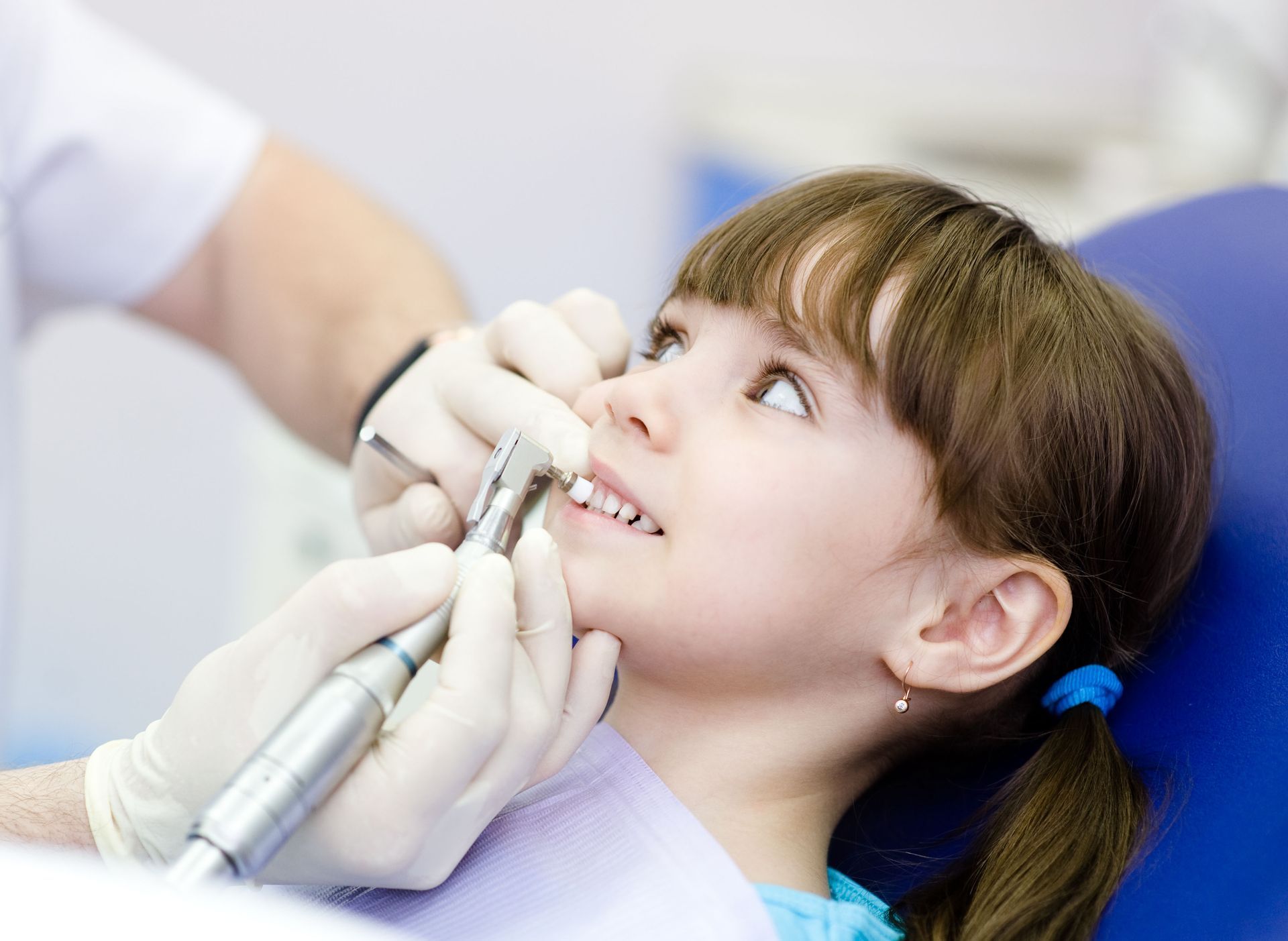The Role of a Pediatric Dentist in Your Child's Smile Journey
Your child’s smile is more than just an expression of joy—it’s a reflection of their overall health, confidence, and well-being. Ensuring that their teeth and gums develop properly from an early age requires specialized care. Pediatric dentists are dental professionals trained to address the unique oral health needs of children, from infants to adolescents, including those with special healthcare requirements. By focusing on prevention, education, and child-friendly care, a pediatric dentist lays the foundation for a lifetime of healthy smiles.
These specialized professionals do more than just treat cavities—they guide families in establishing good oral hygiene routines, prevent dental problems before they occur, and help children feel comfortable in a dental setting. Understanding the critical role pediatric dentistry plays in early development can empower parents to make informed choices about their child’s oral health. This article explores the essential role of pediatric dentistry in shaping your child’s smile journey and highlights why choosing the right pediatric dentist is crucial for long-term well-being.
Supporting Healthy Oral Development in Children
Pediatric dentistry focuses exclusively on the oral health of children, addressing their developmental needs and unique dental challenges. Unlike general dentists, pediatric dentists are trained to handle both the physical and emotional needs of young patients, ensuring that dental visits are comfortable and effective. They provide preventive care, diagnose issues early, and manage dental treatments tailored specifically to children.
Early engagement with a pediatric dentist is critical. The American Academy of Pediatric Dentistry recommends that children see a dentist by their first birthday or within six months of their first tooth erupting. These early visits allow dentists to detect issues such as enamel defects, early cavities, or developmental abnormalities before they become major problems. In addition, children learn how to interact with dental professionals in a positive, low-stress environment, which reduces anxiety for future visits.
Becoming a pediatric dentist requires advanced training beyond dental school. Dentists complete a two- to three-year residency focusing on child psychology, growth and development, and specialized dental procedures for children. Continuous education ensures that pediatric dentists stay up to date with the latest advancements in preventive and restorative care. According to the American Dental Association, in 2023, there were 202,304 active dentists in the United States, including those specializing in pediatric care, demonstrating a vast network of professionals dedicated to maintaining children’s oral health.
Preventing Dental Problems Before They Start
Preventive care is the cornerstone of pediatric dentistry. Pediatric dentists focus on proactive measures to maintain oral health and prevent future problems. Routine exams and cleanings, typically scheduled every six months, allow dentists to monitor teeth and gums for early signs of decay or developmental concerns. These appointments are also an opportunity to teach children about brushing, flossing, and the importance of maintaining a healthy diet for strong teeth.
Fluoride treatments and dental sealants are common preventive interventions. Fluoride strengthens tooth enamel, making it more resistant to cavities, while sealants provide a protective barrier on molars where food particles can accumulate. Both treatments are quick, painless, and highly effective. Pediatric dentists also educate families about nutrition, emphasizing calcium-rich foods and limiting sugary snacks and beverages. Proper nutrition combined with daily oral hygiene builds a foundation for lifelong dental health.
By establishing a preventive care routine, children develop good habits early, reducing the likelihood of painful procedures later. These early lessons not only protect their teeth but also instill confidence in their ability to manage their oral health independently.
Creating Comfortable and Positive Dental Experiences
A welcoming dental environment plays a key role in reducing anxiety and making visits enjoyable for children. Pediatric dental offices are often designed with bright colors, playful décor, and kid-sized furniture. Waiting areas frequently include games, toys, and interactive books, turning what could be a stressful experience into one that is engaging and fun.
Pediatric dentists are trained in behavior management techniques that help children feel at ease. Methods such as the “tell-show-do” approach, modeling procedures with stuffed animals, and using rewards or praise encourage cooperation and reduce fear. Interactive educational tools, including videos, digital games, and hands-on demonstrations, help children understand dental procedures while reinforcing good oral hygiene practices.
Parents play a crucial role in reinforcing these positive experiences. By staying informed and involved, parents can support their child’s dental journey and help foster trust between the child and the dentist. Establishing this foundation early contributes to a lifetime of comfortable and confident dental care.
Managing Common Pediatric Dental Issues
Pediatric dentists are equipped to handle the unique dental challenges children face. One of the most common is Early Childhood Caries (ECC), which can result from frequent consumption of sugary foods and inadequate oral hygiene. ECC may lead to cavities, fillings, or even tooth loss if untreated. Pediatric dentists focus on early intervention, combining preventive guidance, fluoride treatments, and restorative care when necessary.
Children are also prone to dental injuries from accidents, sports, or falls. Pediatric dentists are trained to respond promptly to issues such as chipped, fractured, or knocked-out teeth, minimizing long-term damage. Additionally, pediatric dentists monitor orthodontic concerns, including misaligned teeth or bite issues, and may refer patients to specialists for early intervention. Evaluating dental development by age seven allows timely planning and can reduce the complexity of later orthodontic treatment.
Furthermore, pediatric dentists address speech and bite issues that may arise from dental development, ensuring children can speak and chew properly. They also employ strategies to manage anxiety and fear, fostering a positive association with dental care that benefits children for life.
Collaborating With Healthcare Teams and the Community
Pediatric dentists work closely with other healthcare professionals to provide comprehensive care. Collaboration with pediatricians ensures that oral health is integrated into overall wellness, allowing early detection of systemic issues that may affect teeth and gums. Pediatric dentists may also coordinate care with dietitians to support proper nutrition and oral health. For complex cases, referrals to dental specialists such as orthodontists or oral surgeons ensure children receive expert care tailored to their needs.
Beyond clinical practice, pediatric dentists engage with schools and community programs to promote oral health education. They offer workshops, screenings, and educational materials to teach children about proper dental hygiene and nutrition. These initiatives not only empower families with knowledge but also improve access to dental care for underserved communities. By combining professional care with education and community outreach, pediatric dentists play a critical role in improving children’s overall health and well-being.
Choosing the Right Pediatric Dentist for Your Child
Selecting a pediatric dentist is a decision that can impact your child’s long-term oral health. Consider factors such as qualifications, experience, approach to child behavior management, and the office environment. A pediatric dentist who communicates effectively and fosters a welcoming, supportive atmosphere helps children develop a positive view of dental care.
Building a long-term relationship with a pediatric dentist provides continuity of care. Regular visits with the same dentist help track dental development, catch issues early, and create familiarity and trust. This partnership promotes proactive, personalized care that supports lifelong oral health and ensures children grow up confident in their smiles.
Pediatric dentists play a pivotal role in guiding your child’s smile journey, providing specialized care that ensures healthy teeth, confidence, and lifelong oral well-being. Through preventive care, education, and child-centered strategies, they create a positive dental experience that sets the stage for a lifetime of good oral hygiene and comfort with dental visits. Collaborating with healthcare professionals and engaging with the community further amplifies their impact on children’s health. Choosing the right pediatric dentist and fostering positive dental experiences early on establishes the foundation for strong teeth and healthy habits that last a lifetime. For families seeking exceptional dental care for their children, Dentistry for Children is dedicated to nurturing bright, healthy, and confident smiles from the very first visit.





Share On: